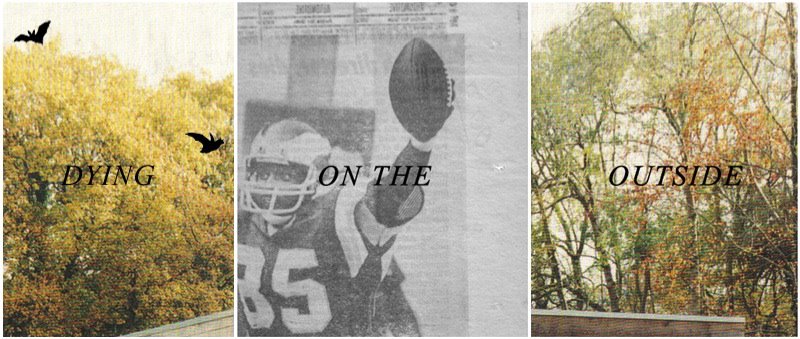It's strange to go to a movie theater and watch a movie and come to a strong opinion about it and then to poke your head around Interspace and find that almost nobody agrees with you. That happened to me when I recently went to see "Blindness," the new movie by Fernando Meirelles, which, I think, is one of the best movies I've seen in a long time. And indeed, most people (critics, I guess they're called) strongly, and with some ridicule, disagree with me. (The generally reliable Andrew O'Hehir goes so far as to call out the one lady who stood up and tearily applauded after a screening of the film at Cannes, while the rest of the audience--according to O'Hehir--counted their lucky stars the the movie was finally over. I'm with you lady.) Anyway, "Blindness" totally blew me away and I'd like to offer some thoughts as to why.
The crux of my difference with these critics seems to be a matter of interpretation. Most see the characters' sudden blindness as a metaphor for our taking for granted society's fragile stability; for the thin veil between political civility and anarchic violence; for our susceptibility to tyranny; for our willful ignorance of our own capacity for evil. There but for the grace of God go we humans, always and forever. (My guess--though I'd probably better admit right now that I haven't read it--is that these are the main themes of Saramago's novel.) These things are certainly at work in the film and the epidemic of blindness is indeed the narrative engine that propels these apocalyptic events. And I would agree with many critics that such events, although always worth taking seriously in this totally rad world of ours, are not necessarily the freshest cinematic fodder (the fact that I have Lord of the Flies as an easy, time-tested reference is testament enough to that) and that some of these elements come off, in the film, as a little trite. If this were your primary reading of the film (and particularly, I would imagine, if you were a fan of the book), Meirelles' disorienting visual style would seem obtrusive, occluding and at cross-purposes with the film's narrative and political message. I also think that you might tend to see many of the characters, nameless as they are, as conveying only symbolic meaning, as mere placeholders in the allegory.
But I think that there's something essentially filmic (and non-novelistic) here that goes deeper than the aforementioned political message. Novels have the verbal breathing room to create rich political and social worlds, fictionalized historical contexts and characters with multi-dimensional inner lives. As evidenced by way too many failed adaptations, it takes a very subtle touch to translate this into a visual language (See, "Children of Men,"). Its appropriate, then, that "Blindness" (the movie) pays only glancing notice to the larger political world, concentrating instead on the hermetic world inside the hospital, on movement, on physical and spatial relationships, on the characters' profound struggles to relearn their bodies and navigate space. So I actually found Meirelles' dark, disorienting visual style appropriate and really powerful. The film's overwhelming whiteouts and blackouts, its chaotic closeups, the darkness and blur on the frame's periphery all serve to undermine our (the viewers') trust in our own vision (a fairly ballsy step for a filmmaker, I'd say) and allow us to share the characters' claustrophobic, radically unstable perceptual experience. Much of the film's power centers on explorations of this experience. There are moments of incredible delicacy, as characters grope and stumble through space or desperately reach for each other. And there are moments of suspense and even real horror as we share in their profound, frantic lostness.
So let me suggest, then, that blindness is neither symbol nor metaphor but the very subject of the film itself. And, further, that the catastrophic events in the film--the government's totalitarian response to the crisis, the hospital's squalor, the anarchic decay of decency that occurs inside--are not simply the results of an extreme political crisis. They also, and maybe more importantly, illustrate the characters' total, violent perceptual reordering and reveal their gross lack of self-knowledge. "Blindness" is about people who have become so alienated from an authentic understanding of their own bodies and the world around them (and remember, viewer, that you too are implicated) that, without their vision, they are completely lost. The world has ceased to exist.
This, I think points to the significance of the characters' anonymity: their old self-conceptions have been erased; without their sight, they are blank slates, people just on the verge of coming into being. They are forced to totally refashion their selves, to discover new meanings in the world, to forge new communities and create new sacraments. This, despite the terrifying things that it forces you to witness is why I felt that "Blindness" is a basically hopeful film. It believes that this overwhelming newness and discovery is possible. It is primarily concerned with the experience of Being, with the ecstatic, sometimes painful process of awakening to the world--and it includes the viewer in that intimate experience. While watching it, and for a time afterwards, I felt incredibly physically aware of the most subtle sensations: plays of light and shadow; the feeling of water on skin; the warm, close aura of other bodies. Did I mention that I loved this movie?
Thursday, October 16, 2008
Subscribe to:
Posts (Atom)

